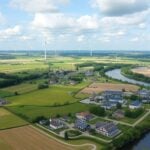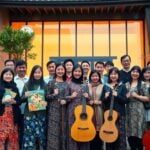Deadline: 22 October 2024
The Council for Scientific and Industrial Research is inviting proposals from South African researchers planning to collaborate with partners on the African continent to apply for support from the African Laser Centre Research Collaboration programme.
The purpose of the programme is to support laser- and laser-application-based research in Africa, specifically between South African researchers and African researchers. The programme is designed to develop, encourage and support a unique programme to build and grow a sustainable corps of expert laser and laser application researchers across Africa.
African Laser Centre Programme – Strategic Intent:
- The purpose of the programme is to support laser- and laser-application-based research in Africa, specifically between South African researchers and African researchers. The programme is designed to develop, encourage and support a unique programme to build and grow a sustainable corps of expert laser and laser application researchers across Africa. The objectives of the programme are to:
- Promote research and training in lasers, optics and photonics.
- Promote and foster technological innovation in the use of lasers, optics and photonics.
- Promote collaboration among laser and laser application researchers:
- Between African research institutions and their international counterparts; and
- To enhance the efforts of any laser-driven initiatives in Africa.
- Reverse the brain drain of researchers from the African continent.
- Improve the quality of life of all African peoples.
The ALC Research Collaboration Programme:
- The ALC Research Collaboration Programme seeks to:
- Increase continental research collaborations;
- Increase the number of postgraduate research students (doctoral students are expressly targeted); and
- Increase research fellowships and research visits.
Funding Information
- The programme supports research collaboration between South African and African researchers, with a special emphasis on researcher mobility. The ALC Research Collaboration Programme funding covers the following aspects of the research collaboration:
- Costs related to the exchange of personnel between collaborating institutes in South Africa and Africa, up to a maximum of two visits per year.
- A daily allowance of R300 per day per person is allowed for senior team members and R250 for junior team members. Senior team members are defined as full-time employees of research institutes. At the current funding level, research visits are limited to 10 days and 60 days per project for senior staff and junior staff, respectively.
- Budgeting for daily accommodation costs per person is according to the following guidelines:
- R1000 per day for senior staff, stay duration of 10 days or less; and
- R7000 maximum per month for junior staff on extended visits (maximum stay duration of 60 days).
- Flights – realistic costs to be included in the proposal. Applicants are encouraged to get quotations for flights in preparing the proposal budget.
- Consumables to be used in the project (lifetime < 1 year), up to a maximum of R50,000. For the proposal budget, it is recommended that the Principal Investigator obtain quotes and provide a good estimate.
- Duration of the grant: Projects can be funded for up to three calendar years.
Eligibility Criteria
- All researchers in Africa engaged in laser- and laser-applications-based research, in any study field in the natural sciences, health sciences or engineering may apply.
- Full-time employees of research institutes may apply for grant funding. It is preferred that the Principal Investigator or main applicant be based at a South African research institution.
- Funding presently available to support ALC projects dictates that research collaborations must involve at least one South African entity. Applications for research collaboration support between only South African entities will not be considered.
- The grant may not be used for training alone but should be based on a project with a strong research component.
- Applicants should hold at least a master’s degree and have a reasonable research track record.
- Students may not apply directly for a grant, but student involvement in projects is strongly encouraged.
For more information, visit CSIR.


























